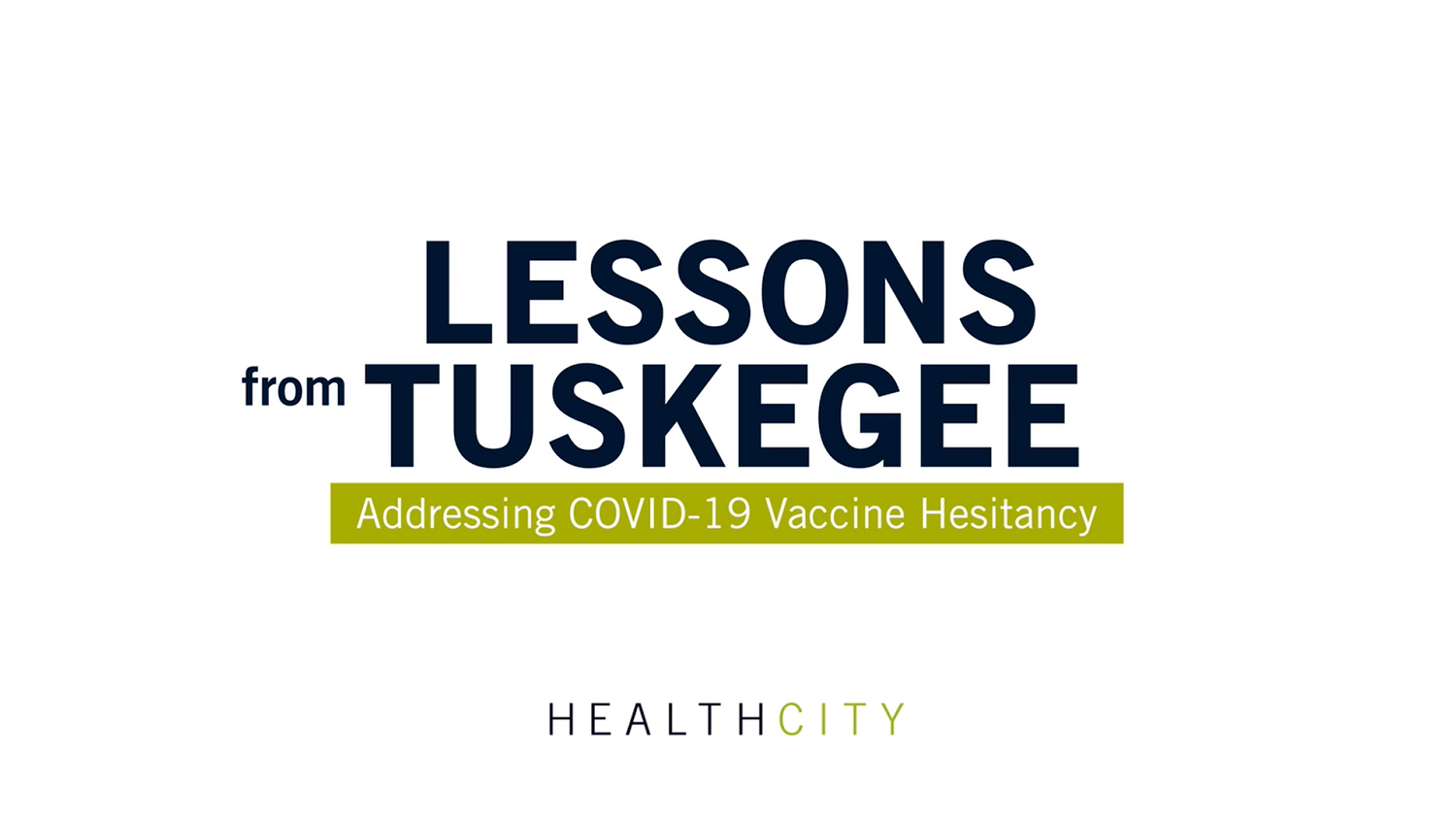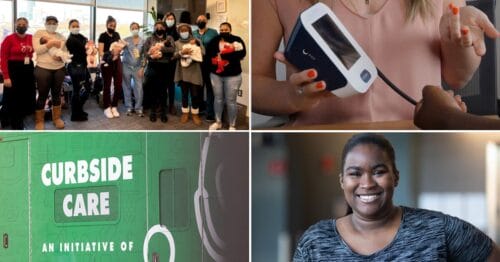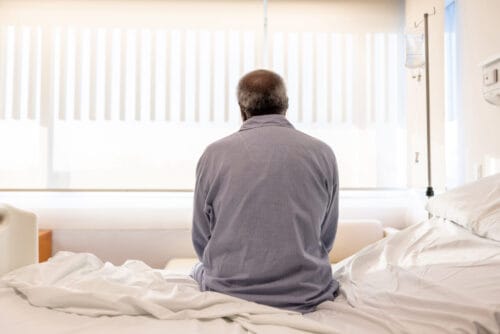Learning from Tuskegee in Understanding COVID-19 Vaccine Hesitancy
March 15, 2021

Adam Knee
Descendants of men in the syphilis study in Tuskegee joined medical experts to address trauma and advocate for informed consent of the vaccine.
In the video above, Reverends Liz Walker and Gloria White-Hammond, MD, of the Roxbury Presbyterian Church moderate a panel with medical experts and descendants of the men who were part of the U.S. Public Health Service syphilis study in Tuskegee to talk about intergenerational trauma, the COVID-19 vaccine and hesitancy, as well as how today’s decision to get the vaccine differs from past nonconsensual medical intervention.
In 1932 in Tuskegee, Alabama, the U.S. Public Health Service recruited approximately 625 Black men in a research project officially called the “Study of Untreated Syphilis in the Negro Male.” The Black men were enrolled with promises of free medical exams and meals. What they were not informed of is that they would be studied for untreated syphilis — that doctors would withhold effective treatment, instead using placebos for medical “intervention.” The study continued for four decades, even through 1947 and beyond, when penicillin was recommended to treat syphilis.
In a panel discussion hosted by the Cory Johnson Program for Post-Traumatic Healing at Roxbury Presbyterian Church, “Trauma to Triumph: Lessons from Tuskegee in This Season of COVID-19,” descendants of men in the study discussed how the distrust that sprouted from the roots of that study have informed responses to the COVID-19 vaccine rollout.
“One of the reasons cited for the hesitancy among African Americans in taking the vaccine for COVID-19 is what happened in Tuskegee, Alabama,” said Reverend Liz Walker, co-moderator of the panel and senior pastor at Roxbury Presbyterian Church. “It was a horrendous violation of ethical standards, a violation of human rights, and one more example of the savage racism that is the history in this country.”
Voices for Our Fathers Legacy Foundation is a nonprofit organized by descendants of the men in the U.S. Public Health Service Syphilis Study at Tuskegee and Macon County, Alabama. Its aim, according to its website, is to promote and advocate for ethical treatment in healthcare and to move forward with “purposeful actions while remembering their [fathers’] suffering and sacrifices.” Carmen J. Thornton, granddaughter of Freddie Lee Tyson and the director of research at the Academy of Child and Adolescent Psychology, spoke about the lasting impact of this trauma.
“In what many are now calling ‘intergenerational trauma,’ it impacts families, it impacts communities, and that’s really what we’re seeing with the hesitancy with this vaccine. There’s knowledge of past abuses,” said Thornton.
Advocating for change via the COVID-19 vaccine response
Members of the Voices for Our Fathers Legacy Foundation, along with other medical experts, highlighted the crucial differences between this moment in history and the unethical, deceptive, and horrific treatment of Black men during the decades of the syphilis study in Tuskegee.
Reverend Gloria E. White-Hammond, MD, co-moderator of the panel, co-pastor of Bethel AME Church, and retired pediatrician, called attention to the role of Black people in the development in the COVID-19 vaccines. Infectious disease specialist Simone Wildes, MD, specifically identified Kizzmekia Corbett, PhD, a Black woman immunologist at the U.S. National Institutes of Health and one of the lead scientists who worked to develop the Moderna COVID-19 vaccine.
Another key difference is the opportunity for consent in getting a COVID-19 vaccine — as opposed to the egregious violations of the study in Tuskegee.
“One of the things that I really feel strongly about is patients having total informed consent and just being upfront and honest about everything,” said Alice Coombs, MD, the interim chair of the department of anesthesiology at the VCU school of medicine.
Wildes explains how the data shows that the FDA-approved COVID-19 vaccines are safe and effective — and that getting as many people in the Black and Brown communities vaccinated is crucial for herd immunity. And reaching herd immunity is the best way to prevent more deaths, particularly among a community of people who are disproportionally affected by the pandemic.
Lillie Tyson-Head, the president of the Voices of Our Fathers Foundation and the daughter of Freddie Lee Tyson, agrees.
“I would like to encourage everyone to consider, if they can tolerate it, to get the vaccine because it is so important,” said Tyson-Head. “It is devastating our Black community and we really need to get involved and help and make sure that it doesn’t continue.”


